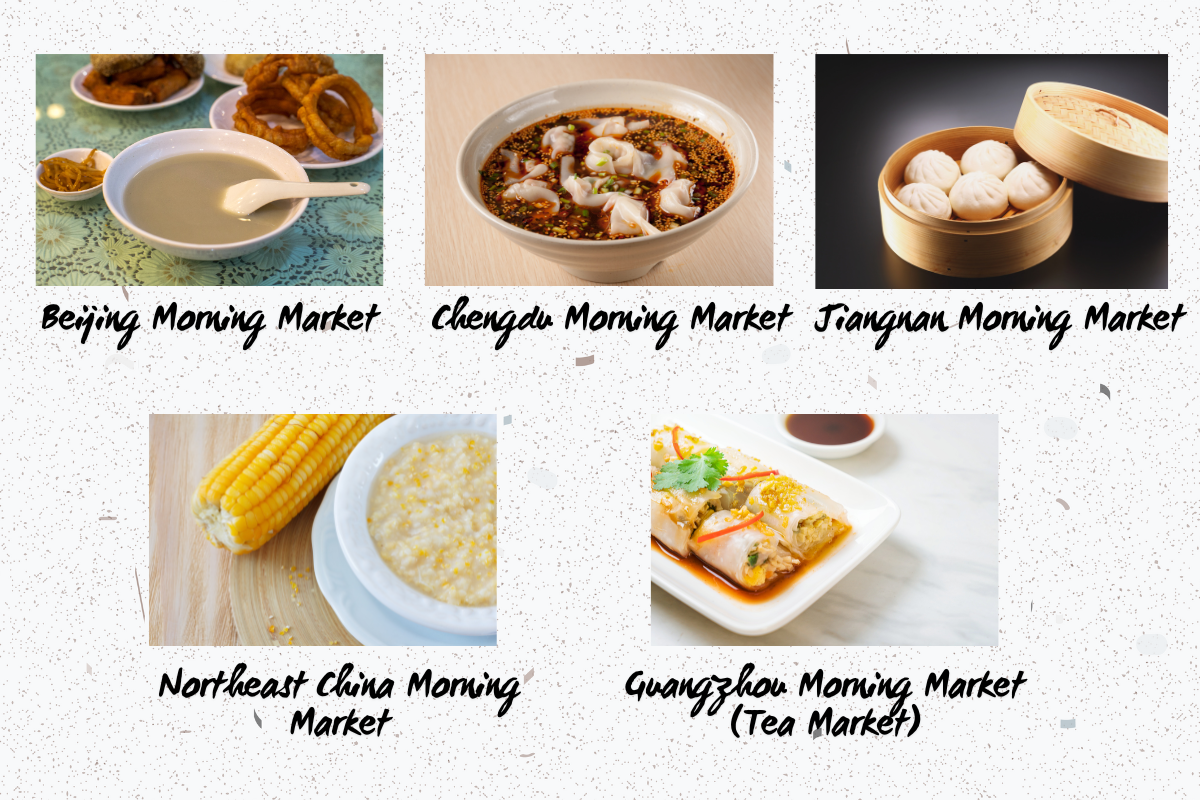Vibrant Morning Markets: A Glimpse into China's Urban Culture
In China, there is a unique urban sight – the morning market. As the dawn breaks, vendors set up their stalls with fresh vegetables, steaming breakfasts, and a chorus of calls, painting a lively scene of everyday life. The morning market is not just a marketplace but a way of life, embodying the Chinese love for life and dedication to traditions.
What is a morning market?
A morning market, also known as a "morning bazaar" or "vegetable market," generally refers to a temporary market set up in fixed locations in the early morning (5:00–9:00). It mainly sells vegetables, fruits, meat, seafood, breakfast items, and other daily necessities. The key differences between a morning market and supermarkets/regular markets are:
- Early opening: It starts as soon as the day breaks for the convenience of working people to buy fresh produce before heading to work.
- Affordable prices: With low stall fees, the goods are usually more budget-friendly compared to supermarkets.
- Lively atmosphere: Filled with a local vibe, conversations in dialects, and a strong sense of community.

Origin and Development of Morning Markets
Morning markets have a long history in China, tracing back to the Tang and Song dynasties' "grass market" and "dawn market."
- Tang and Song Dynasties: With the flourishing commerce, specific markets for early morning trade emerged in urban areas, known as morning markets or dawn markets.
- Ming and Qing Dynasties: Morning markets became more widespread, becoming an essential part of urban residents' daily lives.
- Modern Morning Markets: Despite the rise of supermarkets and e-commerce, morning markets remain active, especially popular among middle-aged and elderly demographics.
Distinct Morning Markets Across China
Beijing Morning Market:
- Features: Soybean milk, fried dough rings, braised dishes
- Representative Markets: Xinmin Vegetable Market, Sanyuanli Vegetable Market
Guangzhou Morning Market (Tea Market):
- Features: Morning tea dim sum (shrimp dumplings, rice noodle rolls, chicken feet)
- Representative Eateries: Taotaoju, Lianxianglou
Chengdu Morning Market:
- Features: Spicy wontons, red-oil dumplings, fresh Sichuan peppercorns
- Representative Markets: Qingshiquiao Market, Yulin Vegetable Market
Northeast China Morning Market:
- Features: Rice porridge with preserved vegetables, pickled vegetables, frozen pears
- Representative Market: Shenyang Xiaoheyan Morning Market
Jiangnan Morning Market:
- Features: Soup dumplings, sticky rice cakes, freshly picked water bamboo, lotus roots
- Representative Markets: Fumenheng Street in Suzhou, Wanshouting Vegetable Market in Hangzhou

If you're heading to the morning market, here are some phrases you can learn:
Basic Greetings/Opening Lines
- Good morning, boss! How much is this?
老板早!这个怎么卖?
Lǎo bǎn zǎo! Zhè ge zěn me mài?
(Smile + point at the item, avoid directly touching.)
Inquiring about Prices & Bargaining Essentials
- 多少钱一斤?/ 能便宜点吗?
Duō shǎo qián yì jīn? / Néng pián yi diǎn ma?
How much per 500g? / Can it be cheaper? - If I buy more, can I get a discount?
我多买几个,能打折吗?
Wǒ duō mǎi jǐ gè, néng dǎ zhé ma?
Checking Product Quality
- Is it fresh? / Can I take a look?
新鲜吗?/ 能让我看看吗?
Xīn xiān ma? / Néng ràng wǒ kàn kan ma? - When buying fruits, you can ask:
Sweet or not?
甜不甜?
Tián bu tián? - When buying vegetables, you can ask:
Are these freshly picked today?
今天刚摘的吗?
Jīn tiān gāng zhāi de ma?
Payment & Confirmation
- Can I pay by scanning a QR code? / Here’s cash.
可以扫码支付吗?/ 给现金。
Kě yǐ sǎo mǎ zhī fù ma? / Gěi xiànj īn.
Note: Morning market vendors may only accept cash, so having exact change will make things smoother!
Transformation of Morning Market Culture
As urbanization advances, traditional morning markets face challenges:
- Urban management: Some morning markets are regulated or relocated due to encroachment on roadways.
- Supermarket impact: Younger generations prefer online shopping or supermarkets.
- Change in lifestyle: Modern individuals wake up later, leading to an older clientele at morning markets.
Despite challenges, morning markets thrive and even become "internet-famous destinations:
- Short video platforms popularize distinctive morning markets (such as Shenyang Xiaoheyan Morning Market).
- Some cities introduce "standardized morning markets," preserving the lively atmosphere while improving cleanliness.
Why Do People Have Fond Memories of Morning Markets?
- Authenticity of life: Here, you experience the most genuine Chinese life.
- Warmth of food: Freshly fried dough sticks, dew-kissed vegetables – they breathe life unlike packaged foods.
- Memory of the city: Morning markets are living history books of a city, holding generations of shared memories.
Morning markets represent a microcosm of China's grassroots culture. Perhaps not as neat and modern, but it is this bustling, lively, and heartfelt atmosphere that gives a city its warmth. Just like the writer Wang Zengqi said, "Roaming the vegetable market is truly one of life's great joys." If you get a chance, why not rise early and immerse yourself in the festive morning market atmosphere, where you can savor the most authentic Chinese flavors.